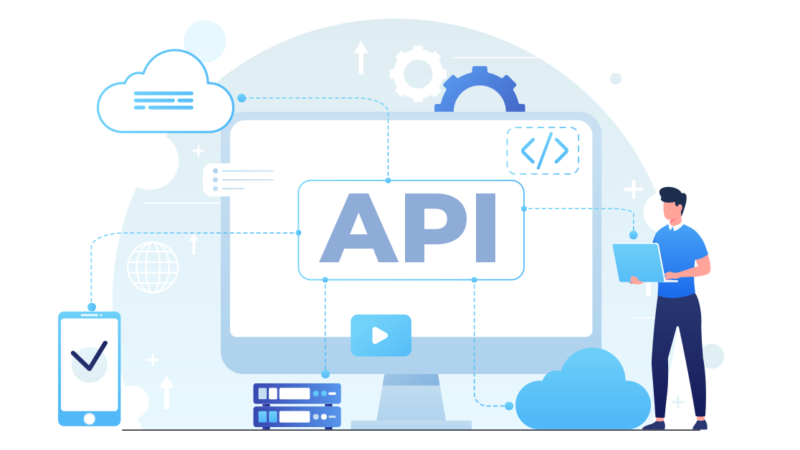How ServiceNow and Snowflake Can Change Your Life?

In today’s digital age, businesses are constantly looking for ways to improve their operational efficiency and overall performance. This has led to the emergence of numerous software solutions that aim to streamline various business processes. Two such solutions that have gained traction in recent years are ServiceNow and Snowflake.
ServiceNow is an enterprise cloud platform that helps organizations manage digital workflows across departments. On the other hand, Snowflake is a cloud-based data warehousing solution that enables companies to store, analyze and share large amounts of data easily. Together, these two platforms offer a powerful combination for businesses looking to transform their operations and boost productivity.
What is ServiceNow
A prominent cloud-based platform called ServiceNow offers a range of IT service management (ITSM) and business process automation (BPA) solutions. It offers a range of integrated tools and modules to streamline and automate workflows, improve efficiency, and enhance collaboration within organizations. ServiceNow is primarily known for its IT Service Management (ITSM) capabilities, but it has expanded its offerings to include various other areas such as HR Service Management, Customer Service Management, Security Operations, and more.
Here are some key aspects and functionalities of ServiceNow:
IT Service Management (ITSM):
ServiceNow’s ITSM module helps organizations manage their IT services, incidents, problems, changes, and service requests efficiently. It provides a centralized platform for handling incidents, automating workflows, managing service catalogs, and facilitating communication between IT teams and end users.
IT Operations Management (ITOM):
ServiceNow’s ITOM module focuses on managing the infrastructure and operations of IT environments. It includes functionalities such as discovery and dependency mapping, event management, service mapping, cloud management, and operational intelligence.
IT Business Management (ITBM):
ServiceNow’s ITBM module assists organizations in managing their IT projects, resources, financials, and portfolios. It provides project management capabilities, resource optimization, financial planning, demand management, and agile development frameworks.
HR Service Management (HRSM):
This module enables organizations to streamline and automate various HR processes, including employee onboarding, offboarding, case management, employee self-service, and HR document management.
Customer Service Management (CSM):
ServiceNow’s CSM module helps organizations deliver exceptional customer service experiences. It offers tools for managing customer interactions, case management, self-service portals, knowledge bases, and service-level agreements (SLAs).
Security Operations:
ServiceNow’s Security Operations module assists organizations in managing and responding to security incidents. It provides features for threat intelligence, vulnerability response, security incident response, and security operations analytics. Want to know more about ServiceNow , For visit here ServiceNow Training!
How Will ServiceNow Can Change Your Life
ServiceNow has the potential to positively impact various aspects of individuals’ personal and professional lives. Here are a few ways in which ServiceNow can bring about changes:
Enhanced Productivity:
ServiceNow streamlines and automates workflows, eliminating manual and repetitive tasks. By providing a centralized platform for managing processes, requests, and approvals, it saves time and boosts productivity. This allows individuals to focus on more strategic and value-added activities, leading to increased efficiency and job satisfaction.
Improved Collaboration:
ServiceNow promotes collaboration by providing a shared platform for teams and departments to work together. It facilitates communication, knowledge sharing, and transparency, enabling better coordination and alignment. This fosters a collaborative work culture, improves teamwork, and enhances overall productivity.
Simplified Task Management:
ServiceNow’s task management capabilities help individuals stay organized and manage their workload effectively. It provides a centralized view of tasks, deadlines, and priorities, allowing individuals to track progress, set reminders, and ensure timely completion of tasks. This leads to reduced stress, improved time management, and a better work-life balance.
Enhanced Self-Service:
ServiceNow’s self-service portals empower individuals to access information, submit requests, and resolve issues on their own. It reduces dependency on IT and other support teams, enabling individuals to find solutions quickly and efficiently. This enhances autonomy, reduces response times, and improves overall user experience.
Improved Customer Service:
For individuals in customer-facing roles, ServiceNow’s Customer Service Management module can have a significant impact. It provides tools to manage customer interactions, track cases, and provide timely support. With a comprehensive view of customer information and service history, individuals can deliver personalized and efficient customer service, leading to increased customer satisfaction and loyalty.
It’s important to note that the extent of the impact ServiceNow has on an individual’s life depends on their role, organization, and utilization of the platform’s capabilities. However, overall, ServiceNow can bring about positive changes by optimizing workflows, promoting collaboration, and improving efficiency.
What is Snowflake
Snowflake is a cloud-based data platform that provides a modern and scalable approach to data warehousing and analytics. It offers a cloud-native architecture designed to handle large volumes of data, deliver high performance, and enable organizations to derive insights from their data.
Key features and concepts of Snowflake include:
Cloud-Based Data Warehouse:
Snowflake operates entirely in the cloud, utilizing the infrastructure and scalability of cloud providers such as Amazon Web Services (AWS), Microsoft Azure, and Google Cloud Platform (GCP). This eliminates the need for on-premises hardware and allows organizations to scale their data warehouse resources up or down as needed.
Data Sharing:
Snowflake enables easy and secure sharing of data across different organizations or departments. With Snowflake’s Data Sharing feature, organizations can grant access to specific portions of their data to other Snowflake accounts, facilitating collaboration and data exchange.
SQL-Based Querying:
Snowflake supports standard SQL for querying and analyzing data. This makes it easier for users to leverage their existing SQL skills and tools to interact with the data warehouse.
Data Security and Governance:
Snowflake incorporates advanced security measures, including encryption, secure data sharing, and role-based access controls. It also provides auditing and compliance capabilities to help organizations meet regulatory requirements and maintain data governance standards.
Native Integrations:
Snowflake integrates with various data integration and analytics tools, including ETL/ELT platforms, data pipelines, BI tools, and machine learning frameworks. This enables organizations to leverage their existing tools and workflows seamlessly with Snowflake.
Snowflake’s cloud-native architecture, scalability, and performance capabilities make it well-suited for handling large and complex datasets, supporting data analytics, data warehousing, and data-driven decision-making. It offers organizations the ability to store, process, and analyze vast amounts of data efficiently, making it a popular choice for modern data-driven businesses.
How Will Snowflake Can Change Your Life
Snowflake, as a powerful and versatile data platform, can bring about significant changes and benefits to individuals and organizations. Here are a few ways Snowflake can impact your life:
Simplified Data Management:
Snowflake’s cloud-based architecture and automated data management capabilities simplify the process of storing, organizing, and accessing large volumes of data. It eliminates the need for managing on-premises hardware and complex infrastructure, allowing you to focus on data analysis and insights rather than data maintenance tasks.
Enhanced Data Analytics:
Snowflake provides a scalable and high-performance environment for running complex data analytics workloads. It allows you to process and analyze massive datasets quickly, enabling you to derive meaningful insights and make data-driven decisions more efficiently. This can lead to improved business strategies, better decision-making, and ultimately, better outcomes.
Collaboration and Data Sharing:
Snowflake’s data sharing feature enables seamless and secure collaboration with other organizations or departments. You can easily share specific datasets or portions of your data with partners, clients, or internal teams, fostering collaboration, accelerating projects, and promoting data-driven collaborations.
Scalability and Cost Efficiency:
Snowflake’s separation of compute and storage allows you to scale resources independently based on your needs. You can allocate computing power as required, ensuring optimal performance during peak workloads and cost savings during periods of lower demand. This scalability and cost efficiency enable you to manage your data infrastructure more effectively and align it with your budget.
Advanced Data Security:
Snowflake incorporates robust security features, including encryption, access controls, and compliance measures. This ensures the protection of sensitive data and helps you meet regulatory requirements. With Snowflake’s data security measures in place, you can have peace of mind knowing that your data is well-protected.
Overall, Snowflake’s capabilities can revolutionize how individuals and organizations manage and analyze data. It empowers data-driven decision-making, improves collaboration, and simplifies data management, leading to enhanced productivity, better insights, and new career possibilities.
Benefits of using ServiceNow and Snowflake
Using both ServiceNow and Snowflake can bring numerous benefits to organizations. Here are some advantages of each platform:
Benefits of using ServiceNow:
Improved Collaboration:
ServiceNow promotes collaboration by providing a shared platform for teams to work together. It facilitates communication, knowledge sharing, and transparency, leading to better coordination and alignment across departments and functions.
Enhanced Customer Service:
With ServiceNow’s Customer Service Management module, organizations can deliver exceptional customer service experiences. It offers self-service portals, case management tools, and service-level agreements (SLAs), enabling organizations to provide efficient and personalized support to their customers.
Efficient IT Service Management:
ServiceNow’s ITSM capabilities help organizations manage their IT services, incidents, problems, and changes effectively. It provides features such as service catalogs, automated workflows, and ticketing systems, improving IT service delivery and resolving issues faster.
Benefits of using Snowflake:
Scalability and Performance:
Snowflake’s cloud-based architecture offers exceptional scalability and performance. It can handle massive volumes of data and allows organizations to scale resources up or down as needed, ensuring optimal performance and cost efficiency.
Simplified Data Management:
Snowflake simplifies data management with its separation of compute and storage. It provides an easy-to-use interface for storing, organizing, and accessing data, eliminating the need for complex infrastructure management.
Advanced Analytics:
Snowflake provides a powerful platform for running complex data analytics workloads. It supports SQL-based querying, integrates with popular analytics tools, and offers advanced analytics capabilities, enabling organizations to derive valuable insights from their data.
Data Sharing and Collaboration:
Snowflake’s data sharing feature allows organizations to securely share data with other organizations or departments. This facilitates collaboration, accelerates projects, and promotes data-driven decision-making across teams.
Robust Data Security:
Snowflake incorporates robust security measures to protect data. It includes encryption, access controls, and compliance features, ensuring data privacy and meeting regulatory requirements.
By leveraging the capabilities of ServiceNow and Snowflake together, organizations can benefit from streamlined workflows, efficient service management, improved collaboration, powerful data analytics, enhanced customer service, and optimized data management, ultimately driving organizational growth and success.
Conclusion :
In conclusion, ServiceNow and Snowflake are powerful platforms that offer distinct advantages to organizations. ServiceNow provides a comprehensive suite of IT service management and business process automation solutions, streamlining workflows, enhancing collaboration, and improving customer service. It enables organizations to automate tasks, optimize operations, and increase productivity across various departments.






